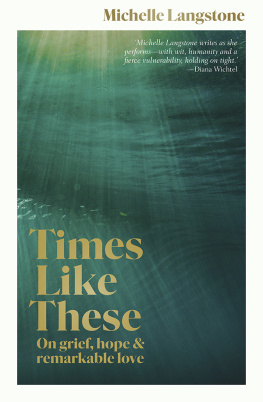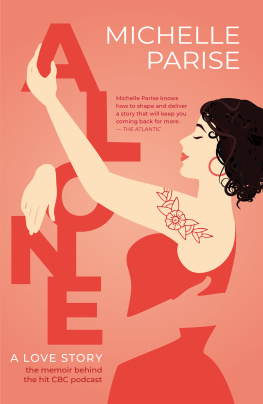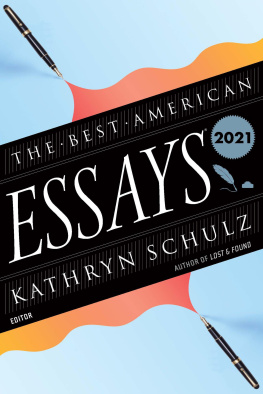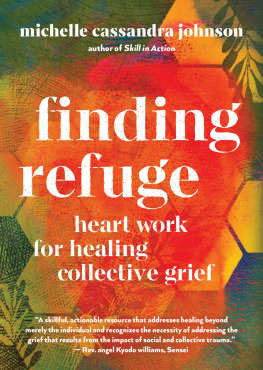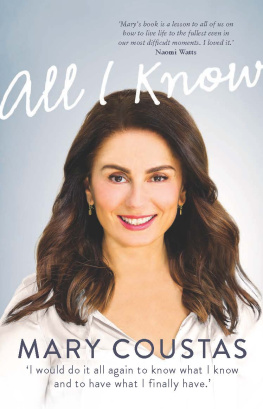First published in 2021
Copyright Michelle Langstone, 2021
All rights reserved. No part of this book may be reproduced or transmitted in any form or by any means, electronic or mechanical, including photocopying, recording or by any information storage and retrieval system, without prior permission in writing from the publisher.
The line by Sylvia Plath quoted on page is from the poem Lady Lazarus in Collected Poems by Sylvia Plath, published by Faber and Faber Ltd. Reproduced with kind permission of Faber and Faber Ltd.
Allen & Unwin
Level 2, 10 College Hill, Freemans Bay
Auckland 1011, New Zealand
Phone: (64 9) 377 3800
Email:
Web: www.allenandunwin.co.nz
83 Alexander Street
Crows Nest NSW 2065, Australia
Phone: (61 2) 8425 0100
A catalogue record for this book is available from the National Library of New Zealand.
ISBN 978 1 98854 752 7
eISBN 978 1 76106 125 7
Cover and internal design: Megan van Staden
Cover photograph: Reuben Nicklin
For my family
I held my father close as he left us and I didnt let go. His death interrupted the processional sun of an ordinary morning, and it kept us back from the rest of the world beyond the room where he lay. Everything flowing on like a river, like a ribbon, like a tide around us while we took the last molecules of breath he had let go of, and pressed them to our eyelids and our cheeks. I kissed him. I was not afraid of his gone skin, of his gone eyes, and the set of his gone jaw. I kissed the cliff of his cheekbones and the gully below them, where freckles I had counted like constellations in recent weeks seemed to disappear with the colour that fled his cheeks.
I unwrapped my hand from his and felt coolness reach the space where he had been. I pressed the pads of his fingers against my own. We spread like starfish, and I wanted to push his nails in, to leave waning moons in my flesh to keep him close. Instead I felt their trimmed sharpness and cried, because I had cut them only yesterday, when he was very alive, and my mother had asked why I was holding the scissors that way. It had taken me thirty-nine years and his imminent death to learn the sharp sickle of the blades should face inward and follow the curve of your nails when you cut them. Thats what I thought of in the minutes after he died.
We knew Dad was dying; we were prepared and we understood. We had dwindled toward this point over many, many months, and yet the complete absence of him in an instant was staggering. I lay my head on his chest, and there was nothing where for months I had charted a faint gurgling of a blocked drain in the centre of him and I had listened to his strong heart holding steady in spite of it, or because of it, anchoring him to the firmament as a barnacle clings to a boat. Those soundsthe coughs, the sleep-moaning, the rattling in the darkwere the soundtrack of our lives for months, and now the record had been changed and I was not ready.
That he was recalcitrant at the time of departure should not have surprised me. Ive never met a human being more stubbornly determined to be in the world. There was no man more full of the joy of living than my father. There was no man more reluctant to part with it. Our doctor came into the room on a day where things had got very bad, and he must have seen the desperation in our eyes; we didnt understand how it could take Dad so long to leave us when his body was so broken. Why would you want to leave when there is so much love in the room, the doctor said, and I looked at Dad, fast asleep at that point, and thoughtYou sneak. Youve got us right where you want us, all in the room for days on end, sleeping beside you, brushing our teeth at the foot of your bed, arguing over the remote and getting crumbs on the coverlet. For his passing we had created the dream of his life: all of us together, keeping watch over his parade at the end of the world.
The first text message Dad ever sent to me was about how he thought it would be tip top to have a family lunch on Sunday, like the old days. Hed held out for years after the technology breakthrough, stubborn, refusing to buy a cellphone, but had finally given in, such were his feelings about lunch. He signed off on the text From Dad, as if I didnt know who it would be sending it. I registered all requirements in an instant, because he had made an institution of Sunday lunch before I knew how to read. Sunday lunch around the wooden table Id carved my initials into with a fork tine, and been thumped for in punishment, age eight. Sunday lunch where we first saw the signs of Alzheimers in my nana, who used her table knife to gouge huge slippery chunks of margarine from the pottle and lop them on a slice of salami to eat. Sunday lunch, no singing at the table. Sunday lunch carefully parting leaves of iceberg lettuce from the stem to make cups for tomato and cucumber with malt vinegar and cheese. Sunday lunch evolving alongside the bread industry, first white, then wholemeal loaves; rolls with cheese on them when the supermarket got a fancy bread section; branching out into sticks of French origin, deepening into rye loaves from the new bakery up the streetsourdough and things with seeds more lately. In the months before his death he came back around to white bread. It was security for his insides that had forgotten what to do with food, and security for his heart, which needed comfort and knowable things in the face of death.
Lunch was more to Dad than food. It was all his humans gathered close together where he could look at us, and laugh with us, and yell if necessary. It was this tradition that built the structure of our world, and love laid out as a tablecloth that bound us. Here is the story of a family of five, recorded in sandwiches and cups of cordial and, later, cool glasses of shandy and foamy beer. Tip top, Mouse, hed say to me. Tip top.
We argued about why nobody had thought to bring massage cream for Dads legs. Irritable, scratched like panes of glass, we bickered. Dad frowned at us, rolling his head side to side across the pillow to take us in. Dont argue, he mouthed, rasps of voice meeting the air. In the end I found hand cream in Mums bag and used that to try to distract him from how hard it was to breathe. His ragged breaths, our ragged hearts, a plastic tube of hand cream that smelled of freesias and an unreachable springtime. Scars ran the side of one foot like a map for treasure. There were metal plates and screws I could feel with my fingertips, his skin was so thin. For a time we were quiet, then Dad had had enough and he motioned me away. I laid the sheets across him, and I adjusted the fan to blow on him because the movement of air made him feel he was breathing better. Dad raised his eyebrows at me, waggled them half-heartedly, and tried to smile.
On the stairs in our entranceway you could perch and feel the measure of the whole house. The staircase ran down through the centre in five levels, with thick wooden bannisters we learned to balance on, terrifying our mother, daring each other to scale down into the dark, down to the rumpus room with the concrete walls. I sat on the stairs that faced the front door on the day Dad turned forty, and I watched the streams of strangers come into our home. In fancy dress I didnt recognise anyone; people waved at me, men in suits and wigs gave me the thumbs-up, and the volume rose. Dad darted in and out of company, bent at the waist, an unlit cigar in his mouth, puffing ostentatiously and grinning like a maniac. His thick inky eyebrows and moustache stayed fixed, and I pressed my thumb and forefinger together and felt the residue of spirit gum there from when hed shown me how to do it. The gum had smelt like the rosin I used on my violin strings, and hed painted it carefully onto the fluffy black material with a tiny brush. I helped press it above his top lip and onto his eyebrows, which he waggled, making me laugh. He added glasses, attached to which was a plastic nose. Tailcoat, white shirt, bow tie, shiny black shoes, and pants my mum had pressed for him. Away he went as Groucho Marx, and he stayed in character all night. He never dropped his role. Even when I begged him to just be my dad and say goodnight as I was trundling off to bed, he wouldnt budge. I lay in my room lit softly by the outside light and wondered if he would ever come back.

